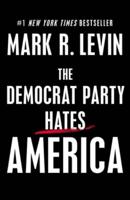Publisher's Synopsis
Since the publication of John Rawls' A Theory of Justice (1971) - followed up by Political Liberalism (1993) and Justice as Fairness: A Restatement (2001) - discussions on social justice and redistributive liberalism have taken center stage in contemporary political theory. a This book adds to an enormous body of literature. a It does not question Rawlsian principles, but it does reject the liberal institutions he advocates. a A debate is constructed in which his liberalism is contrasted with a libertarian socialism informed by the English theorist of guild socialism G.D.H. Cole (1889-1959). a These two authors visualize alternative macro socio-economic schemes. a Although they are set within modern liberal and libertarian socialist frameworks respectively, they share a commitment to reducing vast inequalities in wealth. a Central to the Rawlsian scheme is the difference principle - that inequalities are only permitted if they benefit the least well off. a Rawls proposes that citizens deliberating without awareness of subjective talents - a collective lack of knowledge captured by the Rawlsian term the veil of ignorance - will be compelled to prioritize a society structured to accommodate this principle to other systems in which inequalities are allowed to concentrate with lesser degrees of regulation. a This assertion will not be challenged. a However, it is shown how the difference principle will be more easily realized in the left libertarian scheme, in which the author defends. a The argument is that Rawlsian premises point to a more radical conclusion than Rawls acknowledges.












